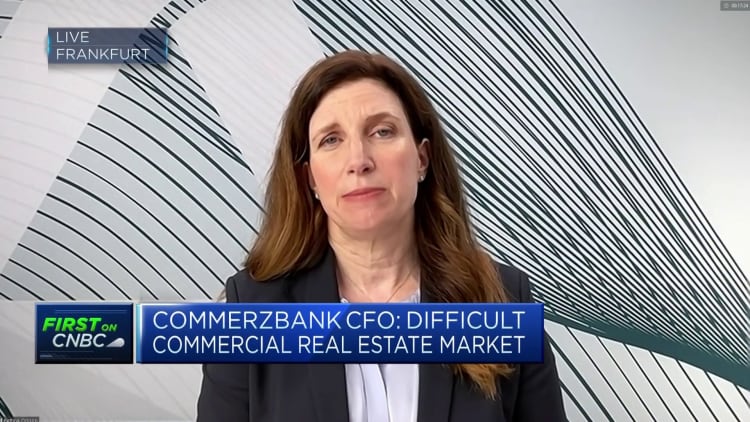An emloyee works on the assembling of a brake caliper for an electric vehicle in Dueren, western Germany.
Ina Fassbender | Afp | Getty Images
European business activity contracted once again during August, to its lowest level since November 2020.
The euro zone’s flash composite purchasing managers’ index, released Wednesday, fell to 47.0 for August from 48.6 in July. This missed economists’ expectations for a figure of 48.8, according to Dow Jones.
A reading above 50 marks an expansion in activity, while one below 50 marks a contraction. If Covid pandemic months are excluded, the latest numbers point to the lowest reading since April 2013.
Cyrus de la Rubia, a chief economist at Hamburg Commercial Bank, said the service sector of the euro zone is “unfortunately showing signs of turning down to match the poor performance of manufacturing.”
In terms of the breakdown between services and manufacturing, the former dropped to a 30-month low at 48.3 and the manufacturing PMI rose slightly from 42.7 in July to 43.7 this month.
“Considering the PMI figures in our GDP [growth] nowcast leads us to the conclusion that the euro zone will shrink by 0.2% in the third quarter,” Rubia added.
The euro zone, the region of 20 nations that share the same currency, grew by 0.3% in the second quarter, having expanded by 0.1% in the first quarter. This lackluster growth shows the impact of higher interest rates and energy prices and subdued external demand.
However, it also masks sharp differences within the region. Germany, for example, reported the deepest contraction in business activity in August.
“The downward pressure on the economy of the euro zone in August stems mainly from the German service sector which switched from growth to contraction at an unusual pace,” Rubia said, adding that reduced output in manufacturing also adds to the argument that Germany is becoming “the sick man of Europe.”
What does it mean for the European Central Bank
The recent economic data is leading the discussion around what the European Central Bank might do when it meets next month.
After its July meeting, ECB President Christine Lagarde said the central bank could either raise rates or pause rate hikes. Ultimately, the decision will depend on new data.

“We continue to expect services inflation to ease enough over the coming months to convince the ECB to not hike past September,” Melanie Debono, senior Europe economist at Pantheon Macroeconomics, said in a note to clients. Others, however, disagree.
“Stagnating employment combines with decreasing production and results therefore in lower output per head. As a result, the ECB may be more reluctant to pause the hiking cycle in September,” Rubia said.
Analysts polled by Refinitiv suggest that the central bank will most likely leave rates unchanged next month with its main rate currently at 3.75%.
Sumber: www.cnbc.com






